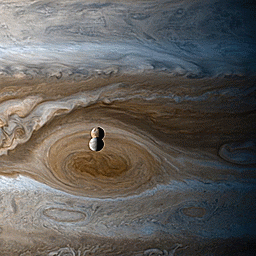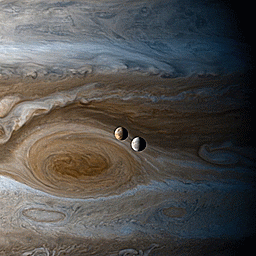(Source)










(Source)
More Posts from Ocrim1967 and Others
Water, Water Everywhere; We Track Drops to Drink!
When we think about what makes a planet habitable, we’re often talking about water. With abundant water in liquid, gas (vapor) and solid (ice) form, Earth is a highly unusual planet. Almost 70% of our home planet’s surface is covered in water!

But about 97% of Earth’s water is salty – only a tiny amount is freshwater: the stuff humans, pets and plants need to survive.
Water on our planet is constantly moving, and not just geographically. Water shifts phases from ice to water to vapor and back, moving through the planet’s soils and skies as it goes.
That’s where our satellites come in.

Look at the Midwestern U.S. this spring, for example. Torrential rain oversaturated the soil and overflowed rivers, which caused severe flooding, seen by Landsat.

Our satellites also tracked a years-long drought in California. Between 2013 and 2014, much of the state turned brown, without visible green.

It’s not just rain. Where and when snow falls – and melts – is changing, too. The snow that falls and accumulates on the ground is called snowpack, which eventually melts and feeds rivers used for drinking water and crop irrigation. When the snow doesn’t fall, or melts too early, communities go without water and crops don’t get watered at the right time.

Even when water is available, it can become contaminated by blooms of phytoplankton, like cyanobacteria . Also known as blue-green algae, these organisms can make humans sick if they drink the water. Satellites can help track algae from space, looking for the brightly colored blooms against blue water.


Zooming even farther back, Earth’s blue water is visible from thousands of miles away. The water around us makes our planet habitable and makes our planet shine blue among the darkness of space.

Knowing where the water is, and where it’s going, helps people make better decisions about how to manage it. Earth’s climate is changing rapidly, and freshwater is moving as a result. Some places are getting drier and some are getting much, much wetter. By predicting droughts and floods and tracking blooms of algae, our view of freshwater around the globe helps people manage their water.
Make sure to follow us on Tumblr for your regular dose of space: http://nasa.tumblr.com.



Created using still images taken by the Cassini spacecraft during it’s flyby of Jupiter and while at Saturn. Shown is Io and Europa over Jupiter’s Great Red Spot.
NASA/JPL-Caltech/SSI/CICLOPS/Kevin M. Gill








(Source)

The year is 1965, and thanks to telecommunication engineers at our Jet Propulsions Laboratory, the first color version of one of our first Martian images had been created. Brought to life by hand coloring numbered strips, this image is a true blast to the past.
Fast forward to the 21st century and our Mars InSight mission now enables us to gawk at the Martian horizon as if we were there. InSight captured this panorama of its landing site on Dec. 9, 2018, the 14th Martian day, or sol, of its mission. The 290-degree perspective surveys the rim of the degraded crater InSight landed in and was made up of 30 photos stitched together.
Make sure to follow us on Tumblr for your regular dose of space: http://nasa.tumblr.com.



Animated Fine Art
Collection by E Lynx of famous artworks that have been animated and rendered in 3D which you can interact with their respective @sketchfab upload:
More Here


















The Kepler space telescope has shown us our galaxy is teeming with planets — and other surprises

The Kepler space telescope has taught us there are so many planets out there, they outnumber even the stars. Here is a sample of these wondrous, weird and unexpected worlds (and other spectacular objects in space) that Kepler has spotted with its “eye” opened to the heavens.
Kepler has found that double sunsets really do exist.

Yes, Star Wars fans, the double sunset on Tatooine could really exist. Kepler discovered the first known planet around a double-star system, though Kepler-16b is probably a gas giant without a solid surface.
Kepler has gotten us closer to finding planets like Earth.

Nope. Kepler hasn’t found Earth 2.0, and that wasn’t the job it set out to do. But in its survey of hundreds of thousands of stars, Kepler found planets near in size to Earth orbiting at a distance where liquid water could pool on the surface. One of them, Kepler-62f, is about 40 percent bigger than Earth and is likely rocky. Is there life on any of them? We still have a lot more to learn.
This sizzling world is so hot iron would melt!

One of Kepler’s early discoveries was the small, scorched world of Kepler-10b. With a year that lasts less than an Earth day and density high enough to imply it’s probably made of iron and rock, this “lava world” gave us the first solid evidence of a rocky planet outside our solar system.
If it’s not an alien megastructure, what is this oddly fluctuating star?

When Kepler detected the oddly fluctuating light from “Tabby’s Star,” the internet lit up with speculation of an alien megastructure. Astronomers have concluded it’s probably an orbiting dust cloud.
Kepler caught this dead star cannibalizing its planet.

What happens when a solar system dies? Kepler discovered a white dwarf, the compact corpse of a star in the process of vaporizing a planet.
These Kepler planets are more than twice the age of our Sun!

The five small planets in Kepler-444 were born 11 billion years ago when our galaxy was in its youth. Imagine what these ancient planets look like after all that time?
Kepler found a supernova exploding at breakneck speed.

This premier planet hunter has also been watching stars explode. Kepler recorded a sped-up version of a supernova called a “fast-evolving luminescent transit” that reached its peak brightness at breakneck speed. It was caused by a star spewing out a dense shell of gas that lit up when hit with the shockwave from the blast.
* All images are artist illustrations.
Make sure to follow us on Tumblr for your regular dose of space: http://nasa.tumblr.com
Take me back to California 🌴❤️

























Ask Ethan: Is Spacetime Really A Fabric?
“I’d like somebody to finally acknowledge and admit that showing balls on a bed sheet doesn’t cut it as a picture of reality.”
Okay, I admit it: visualizing General Relativity as balls on a bedsheet doesn’t make a whole lot of sense. For one, if this is what gravity is supposed to be, what pulls the balls “down” onto the bedsheet? For another, if space is three dimensional, why are we talking about a 2D “fabric” of space? And for another, why do these lines curve away from the mass, rather than towards it?
It’s true: this visualization of General Relativity is highly flawed. But, believe it or not, all visualizations of General Relativity inherently have similar flaws. The reason is that space itself is not an observable thing! In Einstein’s theory, General Relativity provides the link between the matter and energy in the Universe, which determines the geometric curvature of spacetime, and how the rest of the matter and energy in the Universe moves in response to that. In this Universe, we can only measure matter and energy, not space itself. We can visualize it how we like, but all visualizations are inherently flawed.
Come get the story of how to make as much sense as possible out of the Universe we actually have.
-
 piphografy reblogged this · 9 months ago
piphografy reblogged this · 9 months ago -
 soniedlich reblogged this · 10 months ago
soniedlich reblogged this · 10 months ago -
 obscureblues liked this · 10 months ago
obscureblues liked this · 10 months ago -
 iam74irish liked this · 10 months ago
iam74irish liked this · 10 months ago -
 01hatake01 liked this · 1 year ago
01hatake01 liked this · 1 year ago -
 diogenes-el-sinico liked this · 1 year ago
diogenes-el-sinico liked this · 1 year ago -
 murren-606 liked this · 1 year ago
murren-606 liked this · 1 year ago -
 el-zorro-chile liked this · 1 year ago
el-zorro-chile liked this · 1 year ago -
 elmamut liked this · 1 year ago
elmamut liked this · 1 year ago -
 she-loves-the-flowers reblogged this · 1 year ago
she-loves-the-flowers reblogged this · 1 year ago -
 she-loves-the-flowers liked this · 1 year ago
she-loves-the-flowers liked this · 1 year ago -
 free-refills-all-day reblogged this · 1 year ago
free-refills-all-day reblogged this · 1 year ago -
 megamellowpeachstudent liked this · 1 year ago
megamellowpeachstudent liked this · 1 year ago -
 poeneverm0re reblogged this · 1 year ago
poeneverm0re reblogged this · 1 year ago -
 pickyourpoisonmydear reblogged this · 1 year ago
pickyourpoisonmydear reblogged this · 1 year ago -
 cleverasthedevilbutprettier reblogged this · 1 year ago
cleverasthedevilbutprettier reblogged this · 1 year ago -
 screamingwombatgirl reblogged this · 1 year ago
screamingwombatgirl reblogged this · 1 year ago -
 screamingwombatgirl liked this · 1 year ago
screamingwombatgirl liked this · 1 year ago -
 garota-nacional liked this · 1 year ago
garota-nacional liked this · 1 year ago -
 carnalreincarnated liked this · 1 year ago
carnalreincarnated liked this · 1 year ago -
 awesomewithoutme liked this · 1 year ago
awesomewithoutme liked this · 1 year ago